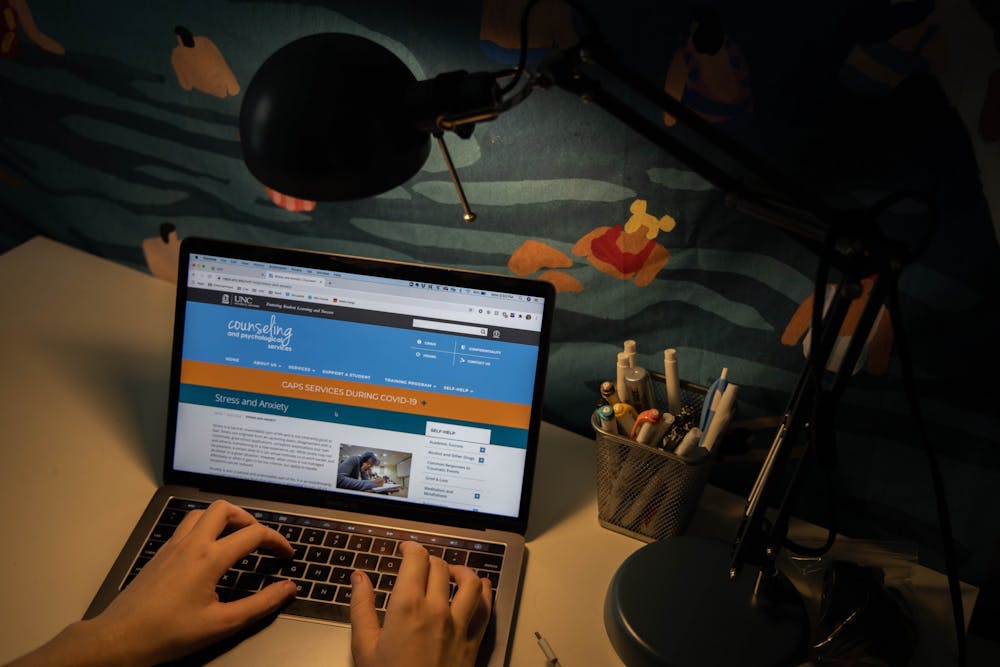Ever since students were asked to leave campus earlier in the fall, many out-of-state students have had to return to their homes outside of North Carolina.
But students outside of North Carolina who seek counseling from UNC's Counseling and Psychological Services have been unable to use its services — because CAPS counselors and psychiatrists only have the licensure to practice within the state.
While some states lifted teletherapy restrictions at the onset of COVID-19, most states require a health professional to be licensed in the state of the patient care, which can inhibit CAPS' ability to help UNC students.
CAPS Director Dr. Allen O’Barr said while CAPS cannot provide psychotherapy to students outside the state, referral coordinators can help students find a provider in their area.
"What we're doing is finding out where they are, giving them the possibility of talking to one of our referral coordinators to help them," O'Barr said.
O’Barr said the issue of state limits to licensure is widespread, and is something college counselors nationwide are working to combat.
“I'm not able to do anything myself,” O’Barr said. “But I am able to be part of the organization that's working to do something around that.”
O’Barr also recommended some external resources that out-of-state students can take advantage of. One of those includes Psychology Today — an online, nationwide database of registered, mental health professionals.
“You can plug into Psychology Today where you are and find all the therapists in your area and then if you need help with things like insurance or stuff like that, the referral coordinators that we have at CAPS can help with that,” he said.



